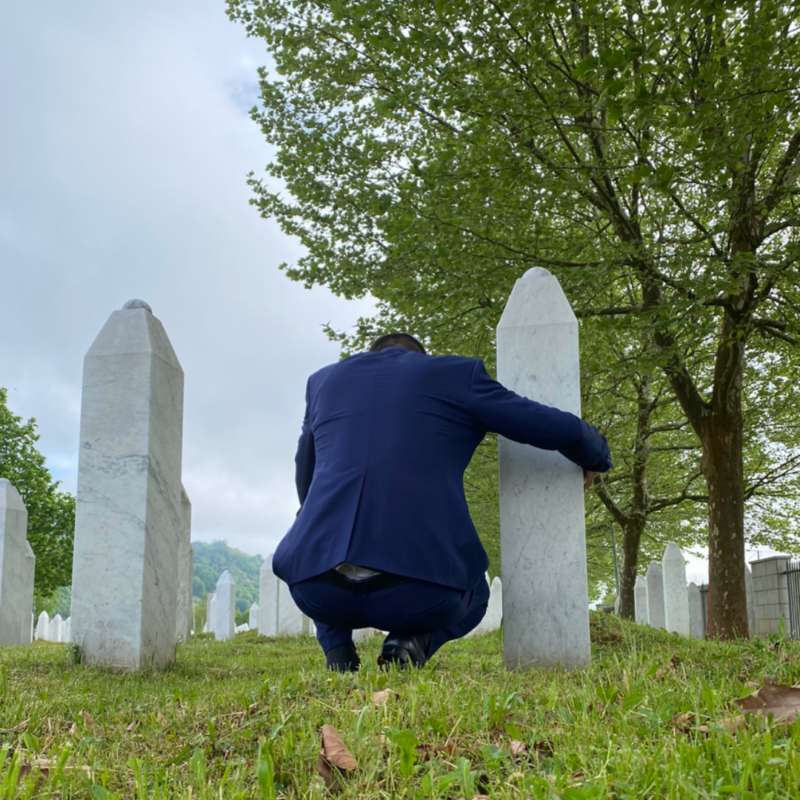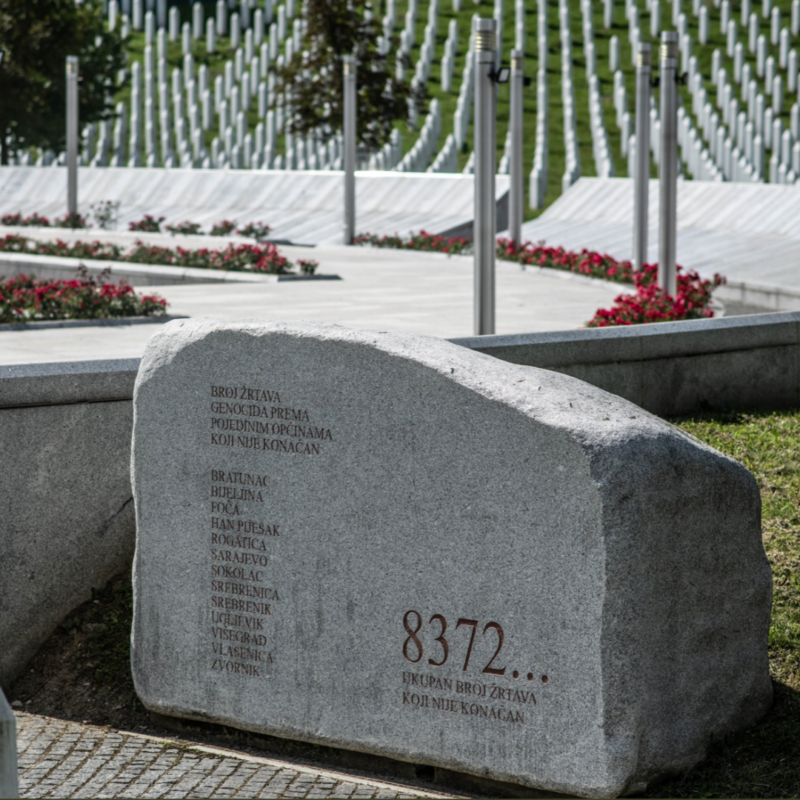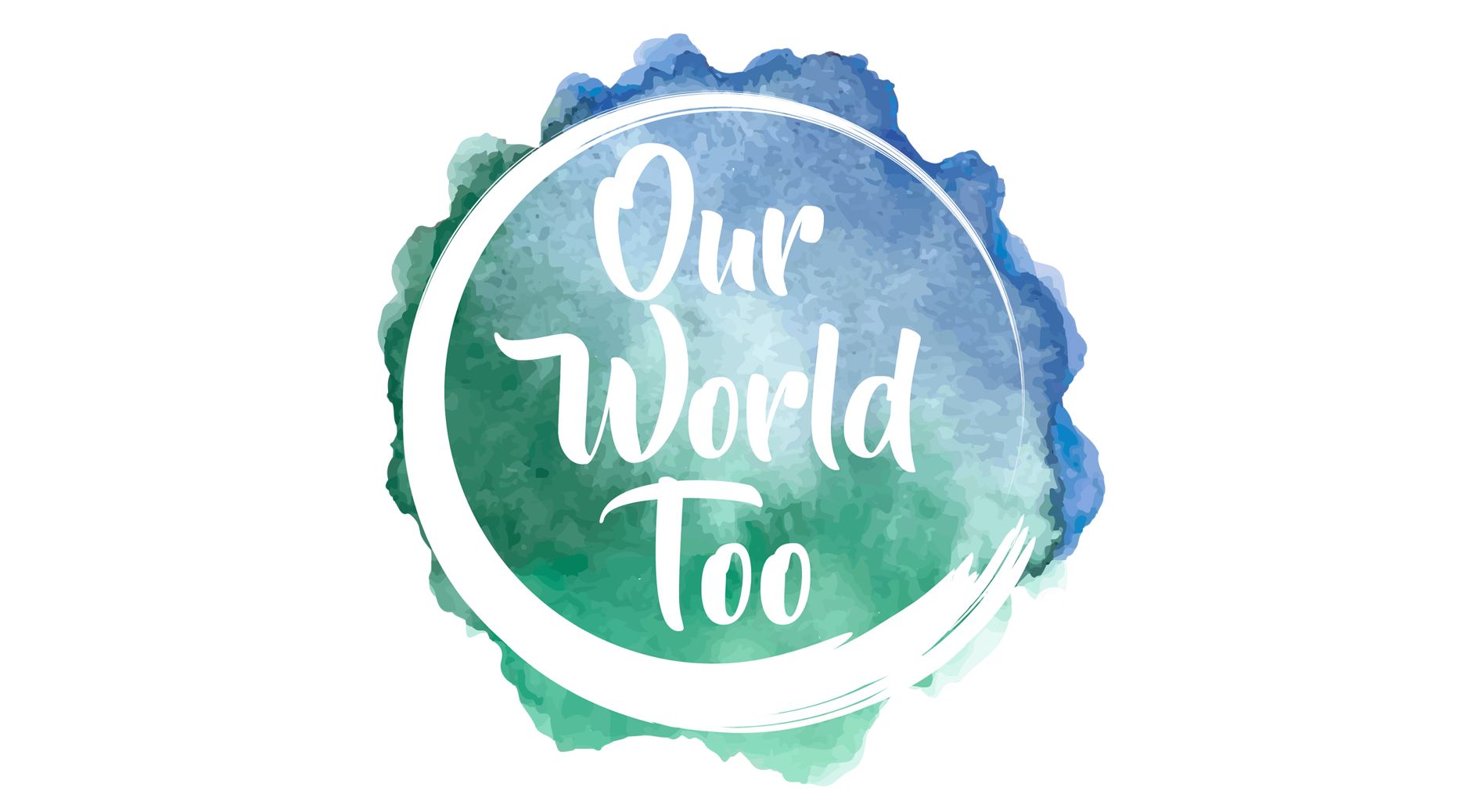It’s our victory to come back to Srebrenica
I didn’t want to go to Tuzla, I wanted to stay with my father. I remember I was crying as my mother held me back, she knew if she let go, I would jump off the truck. Even as a child I knew men weren’t allowed onto the trucks and deep down I knew I would never see my father again.
I was 6 when I started hearing the strange noises and the people saying the Serbs were coming to kill us. When I asked my father about it, he tried to protect me by saying everything would be fine. When the shells reached my village, the noise was everywhere, and everyone was talking about war. Our village was deep in the forest and whenever we heard something strange, we ran into the woods and spent days or weeks there. My older sister is surprised I remember so much, but these memories are deep inside me. I remember a lot about the aggression, it wasn’t a war but an aggression against one people and one nation.
During that time the elders in my village reminisced about stories from WW2. In 1947, just after WW2 the communist police, consisting mostly of Serbs, had come looking for weapons and didn’t believe my great-grandfather when he said they had none, so they took him away and tortured him. He was in the cold River Drina all night and when he was released, he got ill and died. These stories terrorised me and I’m still affected by them. At 6 years old it was very hard to deal with the thought that you wouldn’t survive.
The younger generation believed the blue helmets would be able to save us and when they used to come, we didn’t feel as afraid anymore, but the older generation didn’t feel the same way.
At that point, the Bosniaks near the Serbian border started arriving in our village seeking safety. It didn’t last long because in March 1993, the Serbs reached our village. Shells and grenades were raining down around us. We had to leave, and we walked 35km to Srebrenica. It was a very difficult time; people were sleeping on the streets and all the houses and buildings were full. We stayed with relatives for a week, but it was a very small space with a lot of people living together, so my father and I looked for another room for us to move into. We found accommodation, which was a room which we shared with other families, but in April 1993, there was a massacre in a school and my father quickly realised then that the future in Srebrenica wasn’t good. Back then UN trucks had been entering and leaving the city, but it was difficult for anyone to get into those trucks. With a lot of effort my father and uncle managed to put my mother, my sister and I onto it. The younger generation believed the blue helmets would be able to save us and when they used to come, we didn’t feel as afraid anymore, but the older generation didn’t feel the same way.
The UN officers stayed inside the truck because they were also afraid of being killed. If they had any power, they would have been able to defend Srebrenica, the UN officers in New York didn’t want to save Srebrenica. It was the UN who took our weapons not the Serbs.
Even the UN trucks weren’t safe. Boys over 15 and men, weren’t allowed on. The UN trucks passed through Bosnian Serb territory (occupied territory) and if they saw men, they were taken off immediately and killed. On our way to Tuzla, a Serb got onto the truck to ask for money and gold. They pointed machine guns at us and had bullet belts around their necks. They said they would kill us if we didn’t listen, so a lot of women started handing over their jewellery and money. The UN officers stayed inside the truck because they were also afraid of being killed. If they had any power, they would have been able to defend Srebrenica, the UN officers in New York didn’t want to save Srebrenica. It was the UN who took our weapons not the Serbs.
My father used to send us letters saying he shouldn’t have sent us away and he wanted us to be together regardless of what happened. The Red Cross used to take letters from us to our families in Srebrenica, but they read everything we wrote. If they read something they didn’t like they would cross it out with black markers or burn it. Whenever the letters came everyone ran to hear from their families. I still have hundreds of my father’s letters.
Life in the refugee camp was hard, we hoped Tuzla would be better, but it wasn’t. My mother was pregnant, but she had to work for us to have something to eat. It was like this until my brother way born and we moved to a different camp for families with small children. We were given food and clothes but even then, we didn’t have enough. We had to beg for food, but the food was very old. It was rotten and sometimes had worms in it. When I started school, I didn’t have stationary, so my mother went to other women in the village and asked for notebooks and pencils. They gave us used notebooks and I had to erase all the work to use it. We still weren’t safe though, sometimes the areas around us were bombed. I used to freeze out of fear in the middle of the road, I couldn’t move. It was a very difficult feeling.
My father was full of hope that NATO would protect us. His last letter said don’t worry, we’ll see each other again but we never did.
My father was full of hope that NATO would protect us. His last letter said don’t worry, we’ll see each other again but we never did. My father and his brothers didn’t want to leave each other, and they went together to death. I watched videos on YouTube about Kravica and I recognised them in one of the videos surrendering to the Serbs. My father was killed in Kravica along with more than 1200 other men.
In July 1995, my mother was breastfeeding my brother and when she heard Serbs had attacked Srebrenica, she had a panic attack. She didn’t eat for 20 days and when my brother came to feed himself, he was sucking blood from my mother’s breast. People took her to the hospital, and they said your children have no father they shouldn’t have no mother.

When Srebrenica fell, the Serbs collected soldiers and policemen to kill our fathers, uncles and grandfathers. They hunted them like animals. In Belgrade there was a court process against those who killed in Kravica and I found my father’s name on the list of victims. Initially, we only ever found a few of his bones, we never found his head. We buried him with his brothers and his father. This year we found over half of my father’s bones; we’ll bury then in the Srebrenica Memorial Centre in Potocari this July.
From 1993 – 2005 it was a very difficult period, the people were divided, it was refugee vs. non-refugee (Bosniks in the free territory around Tuzla). When I was in 1st grade in Tuzla, they kept calling us refugees and they didn’t accept us, and a lot of them still don’t. I decided to become an Imam when I was 14 and I finished Madrasa before going to Sarajevo for college. I didn’t face the same sort of discrimination in Sarajevo because most people were refugees. I used to visit Srebrenica every year and I felt better because I could see all my memories unfold, the memories healed me.
I had opportunities to go anywhere in Bosnia, Europe, US or Australia because a lot of Bosnian communities were searching for Imams, but I wanted to go back. I wanted to be somewhere safe with my memories and I came back to Srebrenica in 2014, but even here I still feel like a refugee. I am teaching in a school I know I was with my father in or my uncles were on that street or my grandfather was in that room. I am happy and I can say I have a normal life, but I don’t sleep well. The government didn’t provide enough psychiatric support, you have to do everything yourself and heal your wounds through faith. I do enjoy being here, if you can call it that. I am with the mothers and children of Srebrenica.
There are a lot of Serb narratives saying there was no crime and genocide here and saying Muslims are barbarians who killed them. They dehumanised us. They kept saying they are fighting against Islamic terrorism; this is what they presented to Europe, but they were committing genocide.
Muslims were killed for centuries, in WW2 and centuries before there were a lot of genocides and war crimes which were never spoken about and didn’t make it to court because Communism and Tito made things difficult for Muslims. It was forbidden to talk about what the Serbs and Partisans did. It’s different now because we have the freedom to speak about it. For me the most important thing is the truth, I am trying to present the truth of what really happened here. There are a lot of Serb narratives saying there was no crime and genocide here and saying Muslims are barbarians who killed them. They dehumanised us. They kept saying they are fighting against Islamic terrorism; this is what they presented to Europe, but they were committing genocide. My grandmother and her sisters had 17 sons killed in genocide against Bosniaks in Srebrenica in 1995.
In schools here the children don’t learn about the aggression or genocide. They don’t learn anything about the war. As victims we have to speak loudly and write to fight against the mainstream denial narrative.

It’s our victory to come back to Srebrenica, to help humanity and repair mosques and houses. I feel those around me who committed the crimes are afraid because we’re here again. It’s our victory that we can speak and write about these crimes, yet we still feel fear to talk about it. Even when I tweet or write, I don’t feel safe but what can we do if we don’t fight for the truth. We need to do this to change something. When I die, I can tell God I tried to do something but it’s difficult. We have to change our own situation; we can’t wait for others.
Refugees are people without hope. I didn’t want to hear the word, when someone called me a refugee, I was ashamed of it. As a refugee you have nothing, you are always afraid of something and you are always running away from something. Wherever you go it’s not your land or your hometown. I was ashamed because people spoke badly about us. Why did you leave? Why did you come here to take our land? They laughed at our speech, behaviour and clothing. There’s a stigma.
If we are children of Adam, we are brothers, and it doesn’t matter if we are black or white. It doesn’t matter if we are Muslim or Christian. How can I not accept my brothers from India, Algeria, Pakistan, Syria and Iraq?
I truly believe my faith kept me going. We survived as a family and maybe our story isn’t that remarkable because there are many worse stories. When I look back only God’s will and fate saved us. If we are children of Adam, we are brothers, and it doesn’t matter if we are black or white. It doesn’t matter if we are Muslim or Christian. How can I not accept my brothers from India, Algeria, Pakistan, Syria and Iraq? When I saw people crossing Bosnia I started to cry, our government doesn’t let us help them. It is difficult but most people do give food, shelter and clothes. As a human you have to help everyone, you have to help everyone regardless of race. I’m sad that even today there are still refugees. Some of them came to Srebrenica, to our mosque and I gave them shelter. I opened the mosque and gave them food, money and clothes because I know what it’s like being a refugee. I hope refugees now can be accepted by Europe and they will have normal lives as every human deserves.
